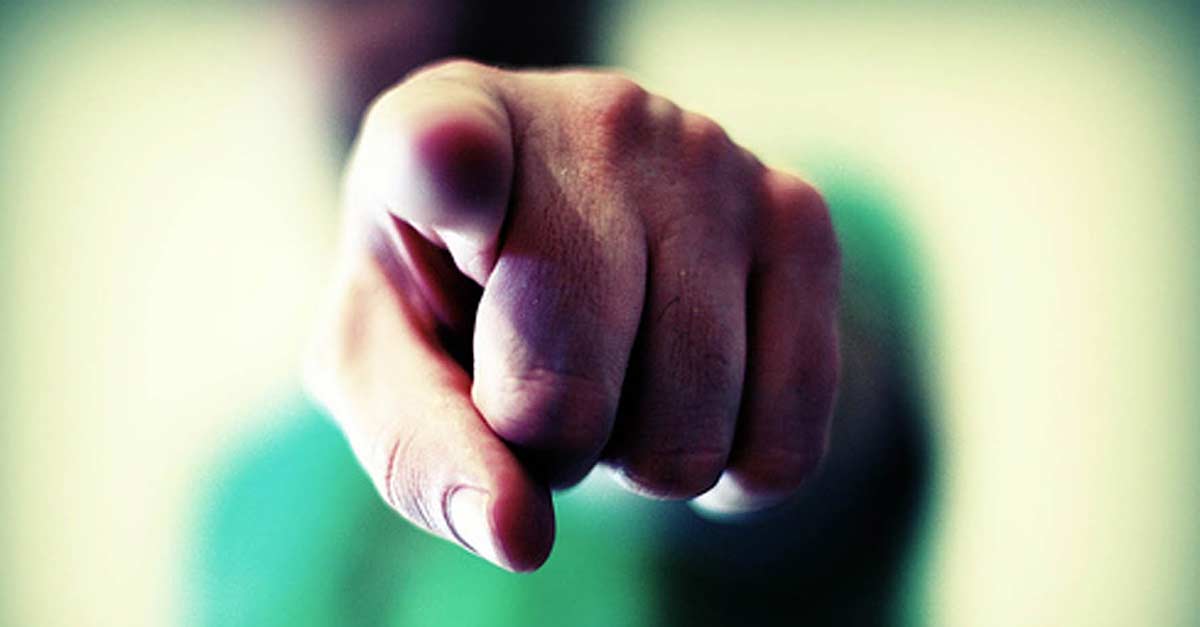Personal responsibility refers to the ability of individuals to take ownership of their actions, decisions, and behaviors in life. It is the willingness to be accountable for one’s choices and the consequences that come with them. Personal responsibility involves recognizing how one’s actions affect themselves and those around them.
It encompasses a broad range of behaviors, including being reliable, honest, and trustworthy, as well as being proactive in making positive changes in one’s life. At its core, personal responsibility means taking charge of one’s destiny by acknowledging that each individual has the power to shape their own future.
Importance of Personal Responsibility in Daily Life
Personal responsibility is an essential quality that plays a vital role in daily life. It is necessary for individuals to take ownership of their actions and decisions if they want to achieve success in all aspects of life – be it personal or professional.
In practical terms, personal responsibility can prevent individuals from blaming others for their mistakes or shortcomings. Instead, they can learn from them and work towards improving themselves.
By embracing personal responsibility, individuals become more self-aware about their strengths and weaknesses- leading to positive changes in behavior. Moreover, when people take responsibility for their actions and decisions- it instills trustworthiness among peers.
This trait can help build healthy relationships built on mutual trust – be it at work or home. Therefore embracing personal responsibility is crucial if one aims to live a fulfilling life filled with meaningful experiences- both personally and professionally.
Understanding Personal Responsibility
Taking ownership of one’s actions and decisions
Personal responsibility involves taking full control of one’s life choices and decisions. This means acknowledging that every decision made has an impact on one’s life, whether positive or negative.
It also means accepting the consequences of these choices, regardless of whether they lead to success or failure. Taking ownership of one’s actions requires a high level of self-awareness and honesty.
It means confronting mistakes and learning from them rather than blaming others or external factors. One way to take ownership is by setting goals that are specific, measurable, achievable, relevant and timely (SMART).
By doing so, it becomes easier to track progress towards achieving a desired outcome while making adjustments when necessary. Being accountable for personal decisions also involves being aware of the effects these choices have on others.
Being accountable for the consequences of one’s choices
Being accountable for one’s actions is an essential part of personal responsibility. When we make choices as individuals, we must be prepared to accept the outcomes even if they are unfavorable. Accountability allows us to take control over our lives and make changes when necessary.
By accepting responsibility for negative outcomes, we can learn from our experiences and make better decisions in the future. Being accountable also involves evaluating the effects our decisions have on others around us.
Every decision made will have an impact on those closest to us such as family members, friends or colleagues at work. Recognizing this impact helps us take steps towards making informed choices that can positively affect not only ourselves but also those around us.
Recognizing the impact of one’s behavior on others
The way we interact with people around us has a significant effect on their lives as well as our own lives. Personal responsibility requires recognizing how our behavior affects those around us including their emotions and feelings towards us or situations in general.
Understanding this impact is essential in developing strong relationships with people and can help to avoid conflicts or misunderstandings. Recognizing the impact of our behavior also involves taking responsibility for correcting any negative impacts.
It requires acknowledging when we have made mistakes and apologizing when necessary. In situations where we have wronged others, personal responsibility demands that we take appropriate steps to make things right.
Taking personal responsibility means owning up to one’s actions and choices, being accountable for the consequences of these decisions, and recognizing how they impact others. Developing these attributes is essential for growth as an individual as well as in building strong relationships with those around us.
The Benefits of Personal Responsibility
Improved Decision Making Skills
Personal responsibility is essential for making sound decisions in life. Individuals who take ownership of their actions and decisions are more likely to make better choices. When individuals understand the consequences of their decisions, they tend to think more carefully before making any decision.
They weigh the pros and cons, anticipate possible outcomes, and evaluate the potential impact of their choices on themselves and others. As a result, they make informed and rational decisions that lead to positive outcomes in life.
Moreover, taking personal responsibility for one’s actions helps individuals develop a sense of accountability which encourages them to take control over their decision-making process. Instead of relying on external factors or other people’s opinions, individuals who take responsibility for their choices are more likely to trust their own judgment when faced with challenging situations.
Increased Self-awareness and Self-esteem
Personal responsibility can help individuals develop a greater sense of self-awareness that leads to improved self-esteem. Through taking ownership of one’s actions, individuals become more aware of their strengths and weaknesses as well as areas that need improvement. This level of self-awareness helps them identify opportunities for personal growth while building confidence in themselves.
Furthermore, when individuals take responsibility for their lives, they experience a sense of accomplishment whenever they achieve something positive. This feeling can boost self-esteem since it validates that they are capable of accomplishing anything that they set out to do.
Greater Sense Of Control Over One’s Life
Taking personal responsibility empowers individuals by giving them control over their lives. When an individual recognizes that they are responsible for the outcome of any situation in which they find themselves, it becomes easier to determine how best to proceed through it or overcome any obstacles preventing progress towards desired goals.
Individuals who embrace personal responsibility tend not only to be happier but also enjoy more fulfilling lives. They feel in control of their lives, which allows them to focus on what they need to do to accomplish their goals.
This sense of control can be a powerful motivator, encouraging individuals to take risks and pursue their dreams. Personal responsibility brings many benefits into one’s life.
By taking ownership of our actions and decisions, it leads to improved decision-making skills, increased self-awareness and self-esteem, as well as a greater sense of control over one’s life. Developing personal responsibility is essential for building a successful and fulfilling life.
Challenges to Personal Responsibility
External factors that can influence behavior
Personal responsibility can be a complex concept to understand and implement. While individuals are responsible for their actions, numerous external factors can affect their behavior. These factors may include cultural norms, peer pressure, environmental conditions, and socioeconomic status.
As such, it can be difficult for individuals to make conscious choices that align with their values and beliefs. For example, people who grow up in poverty-stricken areas may not have access to the same resources as those who grow up in affluent neighborhoods.
They may not have access to quality education or job opportunities, making it challenging for them to take control of their lives and make responsible choices. Moreover, societal norms often dictate what is acceptable behavior and what is not.
People are often influenced by the groups they belong to or the communities in which they reside. This can lead to conformity and a lack of individual responsibility.
Internal obstacles such as fear, doubt, and procrastination
Aside from external factors that influence personal responsibility, internal obstacles also play a significant role in preventing individuals from taking charge of their lives. Fear of failure or rejection is one such obstacle that can hinder personal growth. Many people avoid taking risks because they are afraid of failing or being judged by others.
Doubt is another internal obstacle that prevents personal responsibility. People who doubt themselves may lack confidence in their ability to make decisions or take action towards achieving their goals.
Procrastination is yet another internal obstacle that prevents individuals from being personally responsible. Procrastination involves delaying tasks until the last minute or avoiding them altogether due to a lack of motivation or interest.
While personal responsibility requires taking accountability for one’s actions and decisions, there are numerous challenges that must be overcome both internally and externally.
By recognizing these challenges and working towards overcoming them through strategies like self-reflection and goal-setting, individuals can take control of their lives and become more responsible.
Strategies for Developing Personal Responsibility
Setting Realistic Goals and Deadlines
One of the most important things you can do to develop personal responsibility is to set realistic goals and deadlines for yourself. This means taking the time to assess your strengths, weaknesses, and current circumstances, and then setting goals that are challenging but achievable.
To set effective goals, start by identifying what you want to achieve. Then break down that goal into smaller, more manageable tasks or milestones.
Be sure to assign specific deadlines to each task so that you have a clear timeline for completing everything. Remember that the key is balance: avoid setting goals that are too easy, as these won’t challenge you enough; but don’t set goals that are too difficult or unrealistic either, as this can lead to frustration and discouragement.
Ultimately, setting realistic goals and deadlines is all about being honest with yourself about what you can realistically accomplish in a given period of time. By doing so, you’ll develop greater self-awareness and discipline – two key components of personal responsibility.
Seeking Feedback from Others
An important part of developing personal responsibility is learning how to take constructive criticism from others. Seeking feedback from those around us helps us identify areas where we need to improve – whether it’s in our work habits, communication skills, or something else entirely.
To get good feedback from others, it’s important to seek out people who are both supportive and honest.
This might mean asking a coworker or mentor for their input on a project you’re working on; or it might mean seeking out a friend or family member who knows your strengths and weaknesses well enough to offer meaningful feedback. When receiving feedback from others, it’s important not to take things personally.
Instead, try to view criticism as an opportunity for growth and improvement. Listen carefully to what the other person is saying, ask questions if you’re not sure about something, and be open to making changes as needed.
Cultivating a Growth Mindset
One of the most important strategies for developing personal responsibility is cultivating a growth mindset – or a belief that we can improve our abilities and skills through hard work, dedication, and perseverance.
To cultivate a growth mindset, start by reframing your thinking around challenges and setbacks. Instead of viewing these things as obstacles to be avoided or feared, try to see them as opportunities for learning and growth.
This might mean embracing failure as a necessary part of the learning process; or it might mean seeking out new experiences that push you outside your comfort zone. Another key component of a growth mindset is being willing to take risks – even when there’s a chance of failure.
By taking calculated risks in your personal and professional life, you’ll develop greater confidence in your abilities and learn valuable lessons along the way.
In sum, developing personal responsibility requires us to set realistic goals and deadlines for ourselves; seek feedback from others so we can learn from our mistakes; and cultivate a growth mindset by embracing challenges, taking risks, and seeing failure as an opportunity for learning.
The Importance of Personal Responsibility in Achieving Success in All Areas of Life
In today’s world, personal responsibility is more important than ever. People who are responsible for their own actions tend to be more successful in all areas of life.
They are better equipped to set and achieve goals, manage their time effectively, and make sound decisions that lead to positive outcomes. On the other hand, those who fail to take responsibility for their lives often find themselves struggling with a variety of problems.
Personal responsibility is especially important when it comes to achieving success in one’s career. Employers want employees who are reliable, accountable, and willing to take initiative.
Those who demonstrate these qualities are more likely to be promoted and given greater responsibilities over time. In addition, people who take responsibility for their own professional development tend to have more rewarding careers than those who simply wait for opportunities to come their way.
Take Charge Of Your Life By Embracing Personal Responsibility
If you want to be successful in life, it’s essential that you embrace personal responsibility. This means taking ownership of your actions and decisions, being accountable for the consequences of your choices, and recognizing the impact of your behavior on others.
It also involves setting realistic goals for yourself, seeking feedback from others, and cultivating a growth mindset that allows you to learn from your mistakes.
By taking charge of your life in this way, you can achieve success not only in your career but also in your relationships with others and your overall sense of well-being. You will feel more confident about yourself and have a greater sense of control over your life’s direction.
So if you’re ready to embrace personal responsibility and take charge of your life today! Remember that it’s never too late or too early to start making positive changes in your life that will help you achieve success both personally and professionally.
20 quotes on personal responsibility:
- “The price of greatness is responsibility.” – Winston Churchill
- “In the long run, we shape our lives, and we shape ourselves. The process never ends until we die. And the choices we make are ultimately our own responsibility.” – Eleanor Roosevelt
- “You cannot escape the responsibility of tomorrow by evading it today.” – Abraham Lincoln
- “Man must cease attributing his problems to his environment, and learn again to exercise his will – his personal responsibility.” – Albert Einstein
- “The greatest day in your life and mine is when we take total responsibility for our attitudes. That’s the day we truly grow up.” – John C. Maxwell
- “Life is a gift, and it offers us the privilege, opportunity, and responsibility to give something back by becoming more.” – Tony Robbins
- “Responsibility is the price of freedom.” – Elbert Hubbard
- “You are always responsible for how you act, no matter how you feel. Remember that.” – Robert Tew
- “Take responsibility of your own happiness, never put it in other people’s hands.” – Roy T. Bennett
- “The moment you take responsibility for everything in your life is the moment you can change anything in your life.” – Hal Elrod
- “When you think everything is someone else’s fault, you will suffer a lot. When you realize that everything springs only from yourself, you will learn both peace and joy.” – Dalai Lama
- “Accountability is the measure of a leaders height.” – Jeffrey Benjamin
- “The final forming of a person’s character lies in their own hands.” – Anne Frank
- “The willingness to accept responsibility for one’s own life is the source from which self-respect springs.” – Joan Didion
- “I am responsible. Although I may not be able to prevent the worst from happening, I am responsible for my attitude toward the inevitable misfortunes that darken life.” – Walter Anderson
- “In dreams begin responsibilities.” – W.B. Yeats
- “Freedom is the will to be responsible to ourselves.” – Friedrich Nietzsche
- “Responsibility to yourself means refusing to let others do your thinking, talking, and naming for you; it means learning to respect and use your own brains and instincts.” – Adrienne Rich
- “You may believe that you are responsible for what you do, but not for what you think. The truth is that you are responsible for what you think, because it is only at this level that you can exercise choice. What you do comes from what you think.” – Marianne Williamson
- “Each person must live their life as a model for others.” – Rosa Parks
These quotes emphasize the importance of personal responsibility in shaping one’s life, attitudes, and character.
20 affirmations that can help with Personal Responsibility
- “I am the architect of my life and responsible for my actions.”
- “I own my decisions, and each one leads me to a new path of growth.”
- “Every situation in my life is a result of choices I’ve made. I have the power to change it.”
- “I am accountable for my own happiness and success.”
- “I am responsible for my health and well-being.”
- “I acknowledge my mistakes and learn from them for future improvement.”
- “I am in control of my actions and reactions.”
- “My actions reflect the values I hold dear.”
- “I am committed to making choices that align with my goals.”
- “I am capable and prepared to take initiative in my life.”
- “I can always choose a different path if the current one doesn’t serve me.”
- “I embrace the responsibility of shaping my future.”
- “I take responsibility for my relationships and the energy I bring to them.”
- “I am accountable for my own peace of mind and create it for myself.”
- “I am responsible for how much effort I put into my personal and professional life.”
- “I take pride in being responsible for my actions and their consequences.”
- “I am responsible for creating the life I envision for myself.”
- “I am dedicated to continuously learning and growing.”
- “Every day, I am responsible for making decisions that enhance my life.”
- “I choose to react to situations in a manner that reflects my integrity and personal responsibility.”




























































